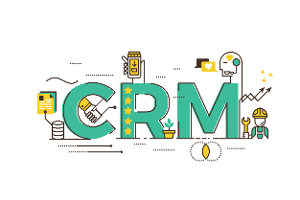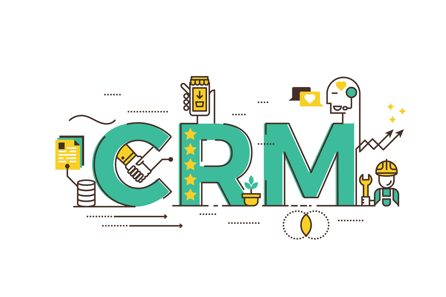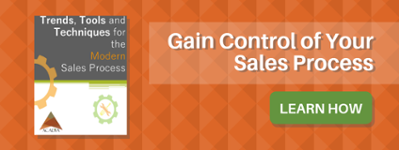
Does your business utilize enterprise resource planning (ERP) software? If you do, you know it gives you powerful insight into several aspects of your operations, including:
- comprehensive supply chain tracking
- inventory management
- purchasing
- end-to-end production and operations data
- quality assurance and product traceability
- production and budget forecasting

But even if you don’t use a software package like this, you’re probably gathering and crunching numbers about these things so you have the complete, big picture of your manufacturing environment. And thanks to the Industrial Internet of Things (IIOT) and communication network connectivity, so many types of equipment can be connected to computer interfaces, it’s becoming easier to use production data to make decisions and process improvements. Where are the worst bottlenecks? Which shift has the most reworked or scrapped parts? Where could you be saving time and money?
It’s all in the data and if you can see it, you can use it.
We see several parallels between this kind of manufacturing intelligence and the benefits of tracking your sales and marketing activity with CRM software – it makes a pretty compelling case for adopting it if you haven’t yet:

Connectivity
Connected equipment supplies data about specific operations. The welding equipment, laser cutter, or end-of-line-inspection sensors all gather data about what they do so you know how they’re impacting each other. A CRM does the same for your client facing team (CFT). Customer service reps, marketing, inside and outside sales, and even tech and service support can log into the system and update records. Because its single-point access for the entire team, anyone can review the information they need, including things like the number of touches, tickets resolved, MQLs obtained, emails opened, sales progression, and more. And because most CRM software is cloud-based, team members can access it online from anywhere so records stay current.
Visibility
A CRM provides visibility into the industrial buyer journey. Today’s buyers have many decision-making points on the path to selecting a new product or service: looking for product specs, identifying vendor capabilities, determining acceptable product tolerances, selecting raw materials, verifying vendor certifications, and more. When you have a single source of information about how these buyers behave (i.e. what online content they read, which emails they respond to, and what they say during conversations) you start to form a picture of what resonates with them individually and as a segment of their industry. This in turn lets you tailor your content and message to give them what they need at the exact part of the funnel they’re in.
Quality assurance
Shipments of supplies and finished parts coming off the line go through a quality inspection process based on your defined criteria, and over time you can see patterns develop and take steps to correct course when necessary. Similarly, a CRM helps you qualify prospects based on the advancement criteria you determine. The notes and status updates your CFT makes indicate if a prospect is ready to buy or just looking, or if you need to engage with additional members of their buying team, or how their needs may not fit with your capabilities.
Traceability
In any facility, but especially in high-liability part manufacturing environments, ERP systems make it possible to follow a part back to its origin and trace everything that happened to it. A CRM provides the same historical view of prospects along their buying journey to see who they spoke with, content they downloaded, any unusual circumstances they have or opportunities to obtain a referral, etc. Your client facing team members have access to each prospect’s backstory before they place a call or when composing an email. It’s also possible to track a single account, ROI on a campaign or segment, performance of a piece of content, or open rate for a particular email campaign. What’s more, this detailed data is the basis for more accurate forecasting and planning.
Just don’t get caught in the trap that many manufacturers do. All too often, manufacturing measures their sales pipeline by the number of quotes that have been completed. The true sales forecast begins at initial engagement, long before a quote has been written. If you are not following the entire journey from the time the inquiry is received or obtained, through qualification, scope definition, quote and negotiation, you are only getting a partial picture.
Efficiency
A birds’-eye view of operations helps you refine processes to boost throughput and quality in the same or less time. ERP data points to needed changes in procedures and work instructions. In the marketing and sales world, a CRM helps you zoom out to see how things are flowing and make changes to your playbook when necessary. Automated workflows, for example, trigger a templated email after someone downloads your new eBook, or send the sales rep a reminder task to follow up on a phone call after three days. Your CRM can put simple, routine tasks like these on autopilot so your teams have more time to spend building relationships with prospects and solving the unusual situations that crop up. After all, no one wants to let a deal slip through the cracks because they were too busy copying and pasting text into a batch of marketing emails. Fight bottlenecks and stay focused on your most important work with task management via a CRM system.
Manufacturing is about producing a quality product efficiently. Marketing, sales, and lead generation are about finding best prospects and closing deal efficiently. Chances are you see the value in tracking and studying manufacturing data to improve your process, why not do that with sales and marketing?
Connect with us today to learn about using a CRM for manufacturing business success.

